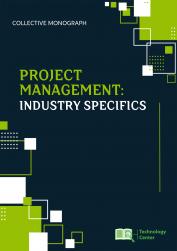Innovative technological modes of data mining and modelling for adaptive project management of food industry competitive enterprises in crisis conditions
Keywords:
Project management, Data Mining, economic models, differential-symbolic approach, fuzzy production rules, IT product, food industry, transport networks, medical support of the population, transport servicesAbstract
Developed in this research scientific and practical applied project solutions regarding Data Mining for enterprises and companies (on the example of food industry) involve the application of advanced cybernetic computing methods/algorithms, technological modes and scenarios (for integration, pre-processing, machine learning, testing and in-depth comprehensive interpretation of the results) of analysis and analytics of large structured and semi-structured data sets for training high-quality descriptive, predictive and even prescriptive models.
The proposed by authors multi-mode adaptive Data Mining synergistically combines in parallel and sequential scenarios: methods of preliminary EDA, statistical analysis methods, business intelligence methods, classical machine learning algorithms and architectures, advanced methods of testing and verification of the obtained results, methods of interdisciplinary empirical expert interpretation of results, knowledge engineering formats/techniques – for discovery/detection previously unknown, hidden and potentially useful patterns, relationships and trends (for innovative project management).
The main methodological and technological goal of this developed methodology of multi-mode adaptive Data Mining for food industry enterprises is to increase the completeness (support) and accuracy of business and technical-technological modeling on all levels of project management of food industry enterprises: strategic, tactical and operational.
By optimally configuring hyperparameters, parameters, algorithms/methods and architecture of multi-target and multidimensional explicit and implicit descriptive and predicative models, using high-performance hybrid parallel soft computing for machine learning – the improved methodology of multimode Data Mining (proposed by the authors) allows to find/detect/mine for new, useful, hidden corporate knowledge from previously collected, extracted, integrated Data Lakes, stimulating the overall efficiency, sustainability, and therefore competitiveness, of food industry enterprises at various organizational scales (from individual, craft productions to integrated international holdings) and in various food product groups and niches.
In more detail, the purposes of this research are revealed in two meaningful modules:
- The first part of the detailed goals and objectives of this research relate to the effective use of Data Mining (and modeling) in the competitive management of enterprises and companies in modern economy, namely:
– research and verification of the effectiveness of the basic/main three types of Data Mining in the management of a competitive enterprise;
– detection of basic/main difficulties and challenges of Data Mining technology in the management of a competitive enterprise;
– research and generation of a list of basic/main expedient functional applied corporate tasks for the application of the improved concept of Data Mining;
– determination of the list of basic/main results of using the proposed Data Mining concept and methodology for an effective and competitive enterprise in dynamic and crisis conditions;
– finding the basic/main advantages of using the proposed Data Mining concept and methodology for an effective and competitive enterprise in dynamic and crisis conditions:
– research of the basic/main technological problems of using the proposed concept and methodology of Data Mining for an effective and competitive enterprise in dynamic and crisis conditions;
– detection of the basic/main ethical problems of using the proposed Data Mining concept and methodology for an effective and competitive enterprise in dynamic and crisis conditions;
– research and search for basic/main perspectives of intelligent data analysis in the management of a competitive enterprise or company.
2. The second and main part of the detailed goals and objectives of this publication relate to the effective use of Data Mining (and modeling) in the competitive management of enterprises and companies in the food industry, namely:
– determination of features and methods of analysis and analytics of High Dimensional big data of at enterprises of the food industry;
– research of features and development of methodological and technological techniques for effective mode of OnLine Data Mining at food industry enterprises;
– research of specifics and development of recommendations regarding the effective mode of Ad-Hoc Data Mining at food industry enterprises;
– research of the specifics and development of applied recommendations regarding the effective mode of Anomaly & Fraud Detection of technological data of food industry enterprises;
– identification of directions and development of recommendations for effective use of Hybrid Data Mining at food industry enterprises;
– detection of features and development of a complex of scientific and practical recommendations regarding the effective regime of Crisis Data Mining at food industry enterprises in dynamic and unstable external conditions;
– identification of directions and development of recommendations for future trends in the effective use of Data Mining at food industry enterprises.
It can not be argued that in modern conditions (pre-crisis, crisis and post-crisis conditions of both regional food industries and the global world; globalization and simultaneous very narrow specialization of the food industry sectors; the need to take into account a huge amount of stream and packet information from various sources and various formats; the need for a quick adaptive optimal management response/adaptation in response to rapid changes in the global or regional market situation; unstable and difficult to predict dynamics of external influences: international, national, sectoral, local direct regulatory and indirect public regulation of the food industry) – deployment of the multi-mode adaptive Data Mining methodology proposed by the authors – will result in enterprises, companies and organizations/institutions of the food industry gaining additional competitive advantages at the state, regional, branch and corporate management levels.

PROJECT MANAGEMENT: INDUSTRY SPECIFICS
Downloads
Pages
Published
Categories
License

This work is licensed under a Creative Commons Attribution-NonCommercial-NoDerivatives 4.0 International License.

